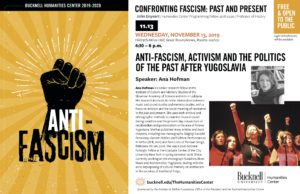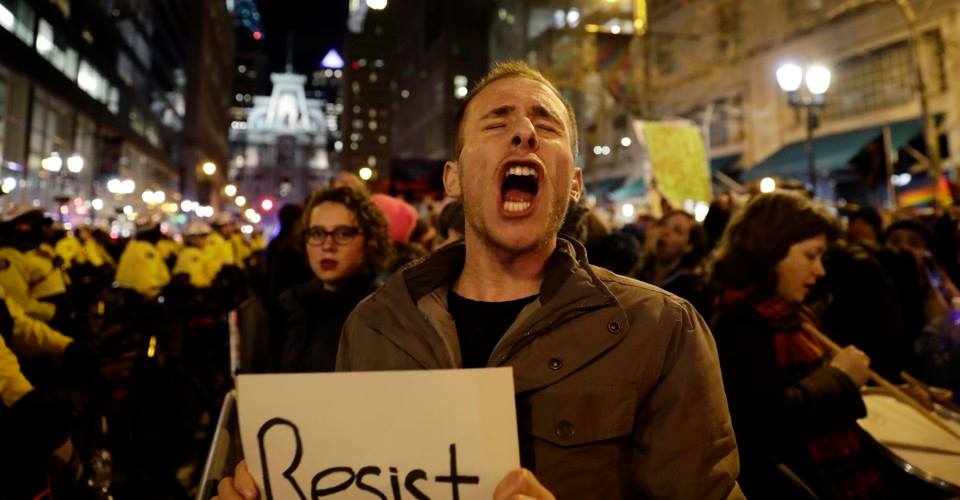Ana Hofman will hold a lecture at the Humanities Center, Bucknell University on “Antifascism, activism and politics of the past after Yugoslavia”; November 13, 2019

In this talk, I examine the potentials and limits of the political mobilizations of antifascism in the context of global neoliberalism. I draw on my long-term research on the practices of repurposing of the legacy WWII antifascist resistance in the post-Yugoslav societies, which started reentering the public sphere after 2008 as a specific response to socio-political challenges, primarily the restoration of capitalism and its consequent crisis. I focus on how activists—more particularly members of activist choirs—deploy the cultural memory of antifascism as a way of reclaiming the political potential of the past in opposing exhaustion and apathy of the present, and imagining new political futures. Methodologically rooted in my long-term, multi-locational ethnographic research as a choir member and participant-observer, my analysis highlights why and how evoking the revolutionary, rebellious, and emancipatory nature of antifascism isused as a tool for political engagement. Looking at the past not just as a spatio-temporal and cultural but also as a sonic category, I observe the role of collective sound-making in the constructing, reconfiguring, and contesting memory of antifascism. This approach aims to demonstrate why and how the resounding cultural memory of antifascism acts as an affective trigger for establishing new transnational networks of solidarity in the region of former Yugoslavia today. Through its focus on this particular region, in this talk I investigate the wider practices of recalling antifascism and simultaneously discuss antifascism as “historical experience” and “the utopian future” from the local, regional and the global, specific and more universal perspective of reshaping political agency under 21st century global neoliberalism.

